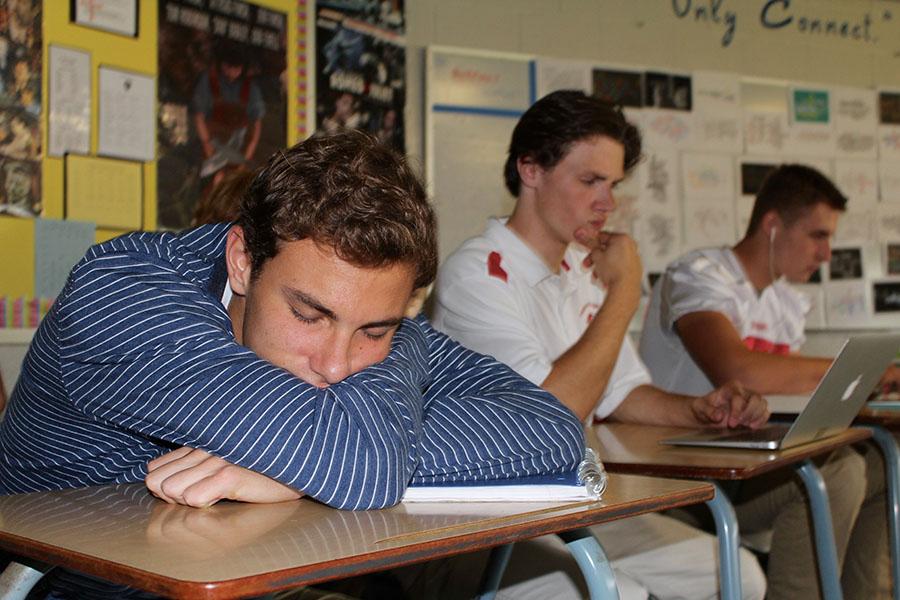How your poor sleeping habits are affecting you everyday
We all know that sleep is important, but most students do not get enough of it. With all of the stress of high school, there’s no time for sleep. The National Sleep Foundation states, “(teenagers) should be getting eight and a half to nine hours of sleep a night.” With sports, activities and homework, it is nearly impossible to reach this amount. Because not every student can get enough sleep nightly, it is crucial to learn ways of how to get the deepest and most effective amount of sleep.
1% of BSM students get an adequate amount of sleep at night, showing that there are some serious issues with students’ sleeping habits.
Screens
83% of the BSM student body look at their phones before they go to bed. Studies have shown that looking at screens before sleeping stimulates the brain, making it harder for one to fall asleep. Most of today’s generation look at their phone or check Facebook or Twitter for the last time before going to bed. It is also common to unwind from a long day by watching TV or Netflix. In order to avoid stimulating the brain before bed, it’s vital to put the electronics away at least an hour before falling asleep. Joan Fox, Medical Director at Abbott Northwestern Hospital Sleep Center, informs on how to get the best sleep. “Avoid [bright screens] close to your eyes for an a hour or more before bed as light is a powerful cue to delay your sleep phase,” Fox said. By avoiding screens, it will become much easier to fall asleep in less time.
Managing your sleep
“In the hectic world of high school, most teens are trying to have it all. The expectations placed on teens by friends, parents, teachers, and coaches are very demanding. If you are not sleeping close to the recommended 9.25 hours of sleep, those demands are so much harder to meet––your brain and body will be inefficient,” Fox said. Teenagers need to find a balance between the things they want to do, and the things they need to do. Only 1% of the BSM student body sleeps for 10 or more hours nightly. Social media is addictive, but sleep is more beneficial to a student’s academic career in the long run.
Sleeping Apps
Techniques to help you to develop better sleeping habits are right at your fingertips with various sleep apps available on smartphones. Many of them including deep breathing exercises and relaxing music, as well as some teaching various ways to meditate. There are thousands of sleeping apps available, but finding which one works best for each individual is important. The top ones consist of: Yoga for Insomnia, Sleep, Relax & Sleep by Glenn Harrold, and Pzizz Sleep. The app focuses on calming the body to make it easier to fall asleep. BSM senior Mikaela Potter uses another app, Sleep Cycle Alarm Clock, to analyze her sleep quality. “It measures movement in your sleep to see how much you are awake during the night [and helps] you feel more rested when you wake up by waking you up at your lightest sleep.” Potter said.
School work
The less sleep, the more difficult learning becomes during the day. “ Short term severe sleep restriction (4 hours or less) and long term mild/moderate sleep restriction (6-7 hours) as well poor quality or disrupted sleep affect cognitive function, memory, physical performance, and emotional stability. So that means your efficiency in learning and ability to ‘perform’ is hindered by insufficient sleep of any kind.” said Fox. Many other studies have been released involving students and their sleep patterns. Duke University came out with an article stating that less than eight hours of sleep affects different parts of our brain that directly affect the ways we learn and communicate.




































![Teacher Lore: Mr. Hillman [Podcast]](https://bsmknighterrant.org/wp-content/uploads/2025/03/teacherlorelogo-1200x685.png)





